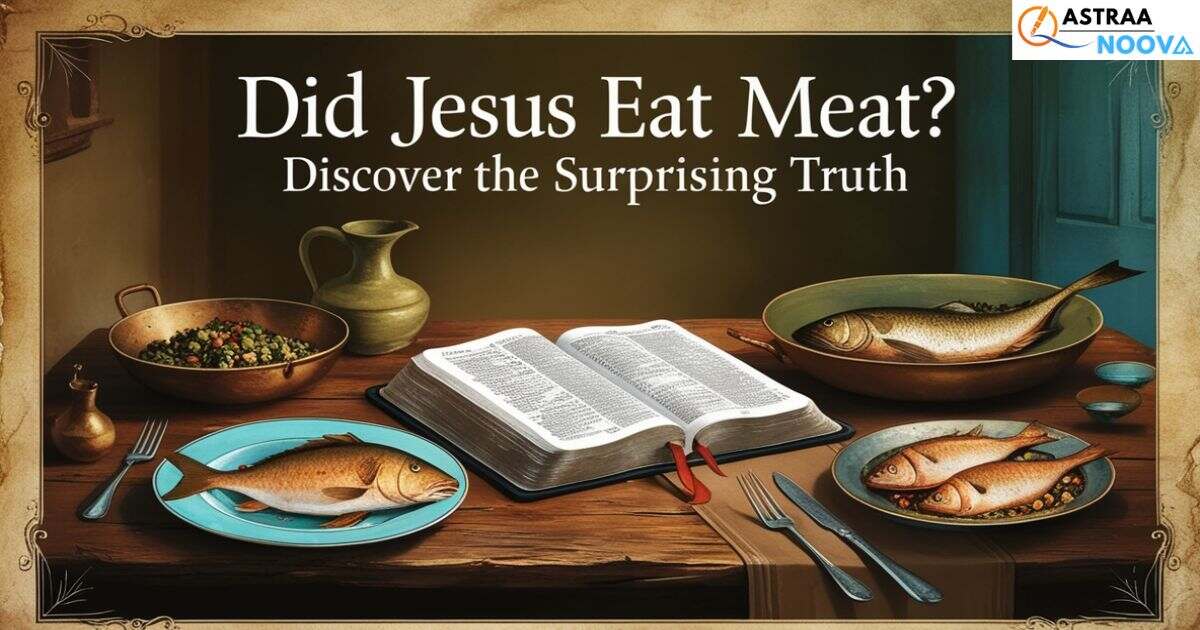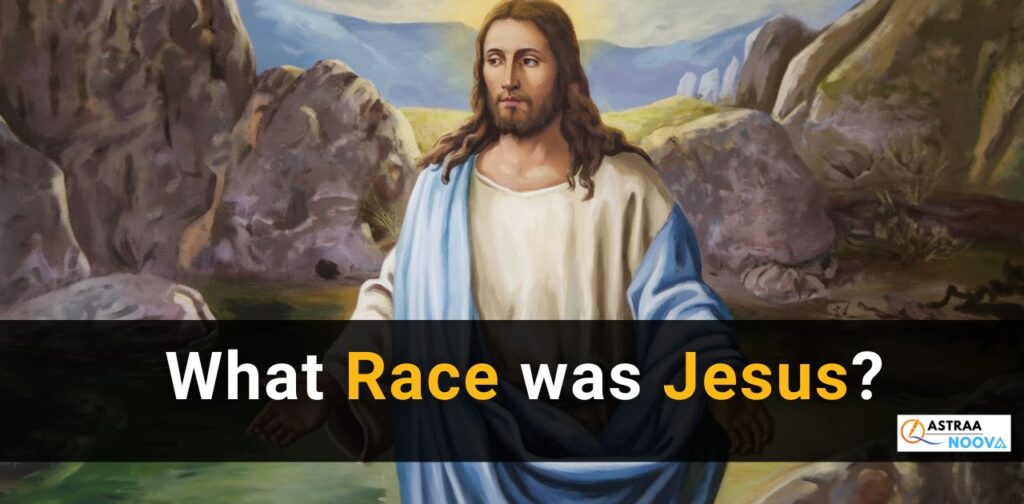Ever wondered what Jesus actually ate during His time on Earth? This question often sparks lively discussions among both scholars and everyday people. Whether you’re exploring faith or simply curious about historical dietary practices, understanding Jesus’s relationship with meat consumption offers fascinating insights into both biblical times and modern dietary debates.
Introduction
The debate about Jesus’s dietary choices has gained renewed attention in recent years. In our modern world where dietary choices carry deep ethical and spiritual significance, many seek to understand what the Bible tells us about Jesus’s eating habits. This question goes beyond simple curiosity it touches on fundamental aspects of faith, tradition, and contemporary dietary practices.
Understanding what Jesus ate helps us grasp the cultural and religious context of His time. The dietary practices during biblical times were deeply intertwined with religious observance, particularly under Mosaic law. This exploration offers valuable insights for both historical understanding and contemporary dietary discussions.
The Permission to Eat Meat
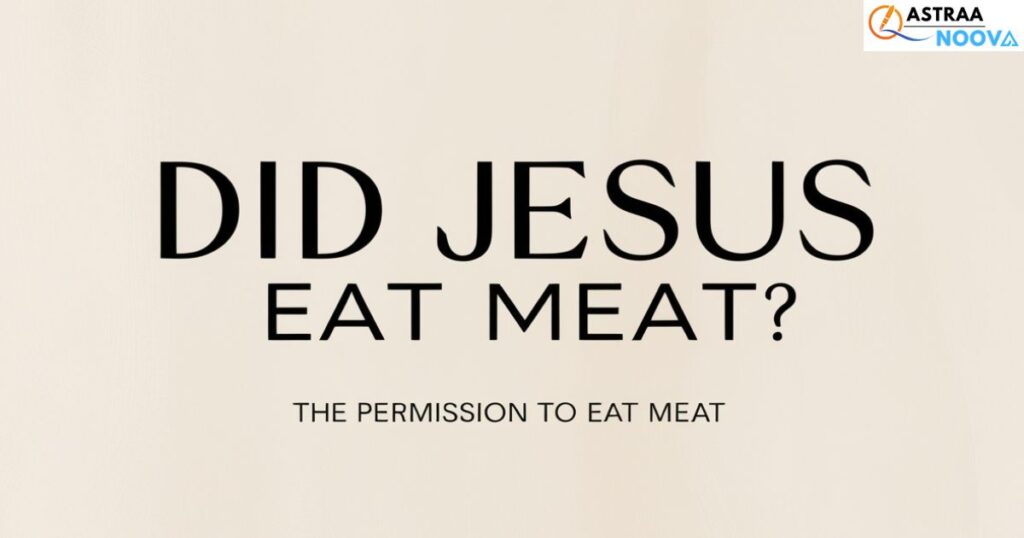
The biblical narrative of meat consumption begins with a clear turning point. After the Flood, God spoke to Noah in Genesis 9:3, declaring “Everything that lives and moves about will be food for you.” This divine permission marked a significant shift from the previously plant based diet of humankind.
This permission wasn’t given without context. The Old Testament provides numerous examples of meat consumption as part of religious observance. From the Passover lamb described in Exodus 12 to the provision of quail in the wilderness (Exodus 16), meat played a significant role in biblical history.
Daniel’s Vegetarian Diet
The story of Daniel in Babylon offers an interesting perspective on dietary choices. His choice to maintain a vegetarian diet wasn’t necessarily a rejection of meat eating, but rather a careful adherence to Mosaic law in a foreign land where food might not meet Jewish dietary requirements.
This historical account demonstrates how dietary choices often reflected deeper spiritual commitments. Daniel’s decision shows us that sometimes, dietary restrictions served as a way to maintain religious identity and purity in challenging circumstances.
Jesus’ Consumption of Fish
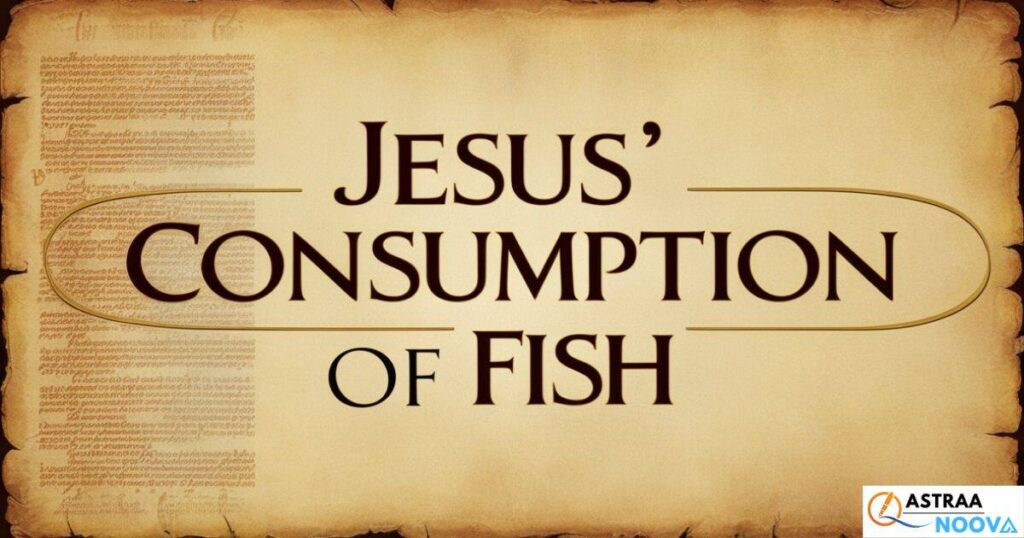
We have clear biblical evidence of Jesus eating fish. Luke 24:41-43 explicitly describes Jesus consuming fish after His resurrection. Moreover, He actively participated in the distribution of fish, as seen in Matthew 14 during the feeding of the multitude.
The gospels record multiple instances where Jesus helped fishermen with miraculous catches (Luke 5 and John 21). These weren’t just miracles they were events that provided food for consumption and livelihood for His followers.
The Feast of Passover
The Feast of Passover holds particular significance in understanding Jesus’s dietary practices. As a devout Jew, Jesus participated in this feast, which explicitly required eating the Passover lamb according to Exodus 12:8.
Historical records show Jesus regularly observed Passover from His youth (Luke 2:41) through His adult ministry (John 2:13, John 5:1, Matthew 26:17-30). This consistent participation in a feast centered around lamb consumption strongly indicates His acceptance of meat eating.
Read Also >> What Ethnicity Was Jesus? Discover His True Origins
Jesus’ Teaching on Clean and Unclean Foods
A pivotal moment in biblical dietary law came when Jesus addressed the issue of clean and unclean foods. In Mark 7:19, Jesus made a revolutionary declaration that all foods were clean. This teaching marked a significant shift from traditional Jewish dietary restrictions.
This declaration wasn’t made in isolation. It came during a broader discussion about religious traditions and their true meaning. Jesus’s teaching emphasized that spiritual purity was more about the heart than about dietary regulations, though He never dismissed the importance of mindful eating.
The Apostle Paul later expanded on this teaching in Romans 14:2-3, emphasizing that dietary choices shouldn’t become a source of judgment among believers. This balanced approach acknowledged personal conviction while maintaining community harmony.
Misconceptions About Jesus’ Vegetarianism
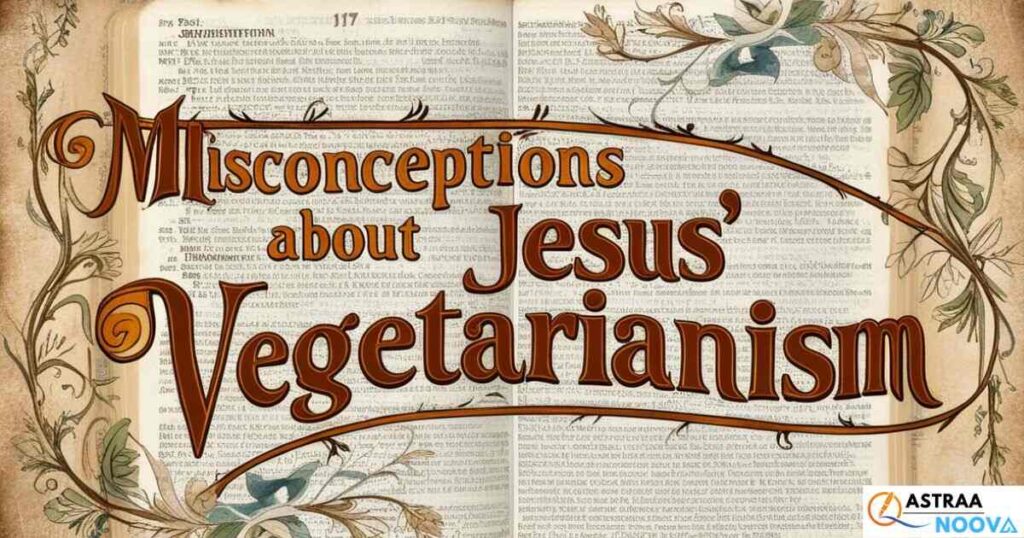
Some modern groups claim Jesus was vegetarian, citing His teachings on kindness and compassion. However, this interpretation overlooks substantial biblical evidence of His meat consumption and participation in meat-inclusive religious festivals.
While Jesus certainly taught about humane treatment of animals and compassion for all creation, these teachings didn’t translate into a prohibition of meat eating. Instead, they emphasized responsible stewardship and respect for all life.
The historical and archaeological evidence from first-century Palestine shows that fish and meat were common parts of the diet. Cultural and historical context reveals that complete vegetarianism would have been highly unusual in Jesus’s time.
Why This Matters
Understanding Jesus’s dietary practices helps us better comprehend the Passover meal and its significance in Christian theology. It provides context for modern discussions about faith and food choices.
This knowledge can inform how we approach contemporary debates about diet and ethics. While Jesus’s time differed greatly from ours, His balanced approach to food and fellowship offers wisdom for today’s discussions.
The topic reveals how theological principles can guide practical life decisions while respecting individual conscience and community unity in the Body of Christ.
Cultural Context and Historical Evidence
Archaeological findings from first-century Jerusalem reveal typical dietary patterns. Excavations have uncovered numerous fish bones and cooking implements, confirming the biblical accounts of fish consumption.
Jewish households of the period maintained distinct dietary practices aligned with Mosaic law. These practices included careful food preparation and specific restrictions that Jesus would have observed during His earthly ministry.
Modern Applications and Considerations
Today’s believers face different dietary challenges than those of biblical times. Factory farming, environmental concerns, and health research add new dimensions to our food choices.
While Jesus’s example doesn’t prescribe specific dietary rules, it demonstrates the importance of making thoughtful choices while maintaining community fellowship. His approach balanced adherence to religious tradition with practical necessity.
Think About It
When considering your own dietary choices, remember that Jesus modeled both freedom and responsibility. He demonstrated that food choices can reflect spiritual convictions while avoiding legalism.
Your personal decisions about diet can align with your faith while respecting others’ choices. The key is maintaining balance between personal conviction and community harmony.
Final Thoughts
The biblical evidence clearly shows that Jesus did eat meat, particularly fish and the Passover lamb. His dietary practices reflected both divine permission and cultural norms while teaching broader lessons about spiritual truth and community unity.
This understanding helps us approach modern dietary discussions with wisdom and grace. While our circumstances differ from biblical times, Jesus’s example of balancing conviction with compassion remains relevant today.
Whether you choose to eat meat or follow a plant-based diet, the key is making choices that honor God while respecting others’ consciences. The focus should remain on spiritual growth and community fellowship rather than rigid dietary rules.
Read Also >> Where Was Jesus Crucified? Unveiling the Sacred Jesus Crucifixion Site
FAQ’s About Jesus and Meat Consumption
Here are the most relevant questions and clear answers about Jesus’s dietary practices based on biblical evidence:
Q: What did Jesus say about eating meat?
Jesus declared all foods clean in Mark 7:19, removing previous dietary restrictions. He never explicitly commanded or prohibited meat consumption, but demonstrated through His actions that eating meat was acceptable.
Q: What kinds of meat did Jesus eat?
Biblical records confirm Jesus ate fish multiple times, as documented in Luke 24:41-43. He also participated in the Passover feast, which included eating lamb according to Jewish law. These are the only meats specifically mentioned in relation to Jesus’s diet.
Q: Was Jesus actually a vegetarian?
No, biblical evidence clearly shows Jesus consumed meat, particularly fish and lamb during Passover celebrations. Claims of His vegetarianism conflict with multiple biblical accounts of His eating habits and participation in traditional Jewish feasts.
Q: What was Jesus’s diet?
Jesus followed typical first-century Jewish dietary customs, which included bread, fish, lamb (particularly during Passover), fruits, and vegetables. His diet reflected the common foods available in ancient Palestine while adhering to Jewish dietary laws.
Q: Does God want us to not eat meat?
According to Genesis 9:3, God explicitly gave humans permission to eat meat after the flood. While the Bible encourages responsible stewardship of creation and humane treatment of animals, it doesn’t prohibit meat consumption.

Multilingual faith educator exploring connections between language, spirituality, and dream symbolism.
